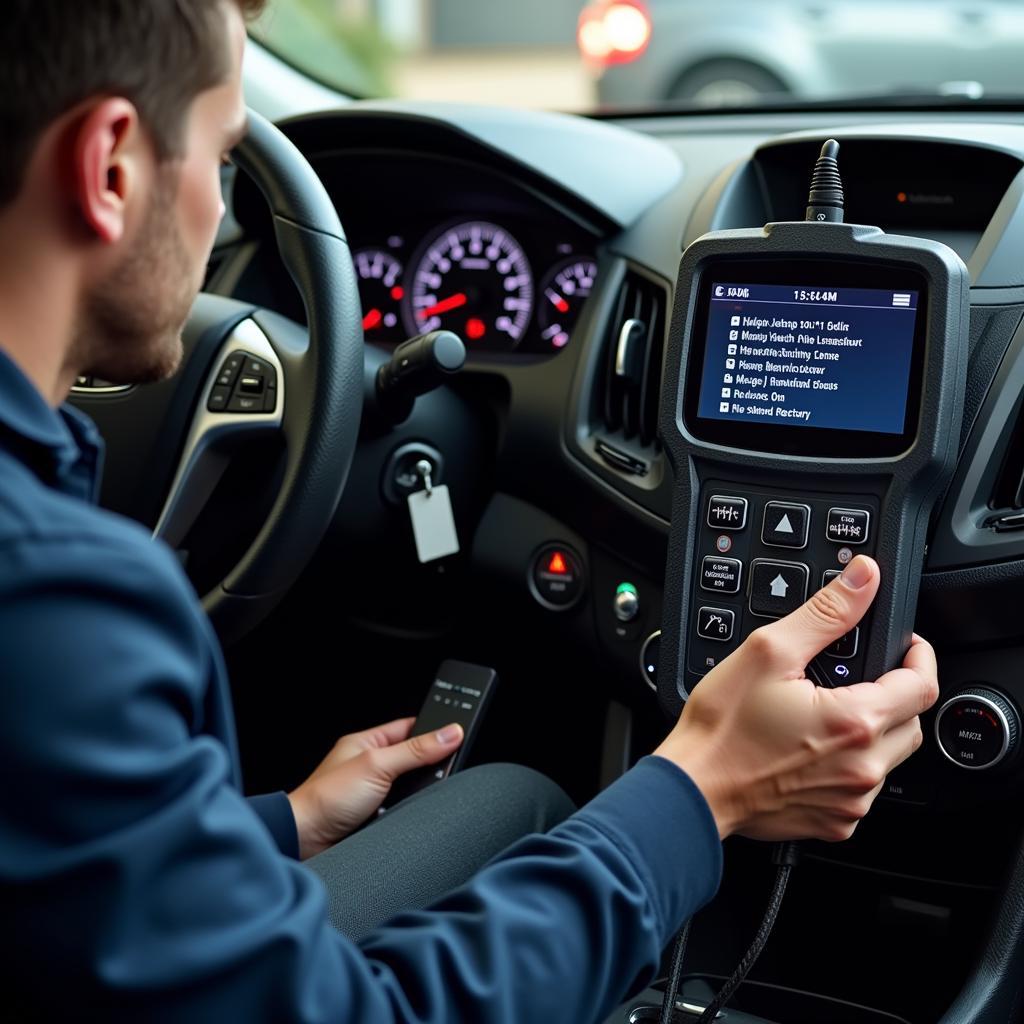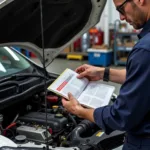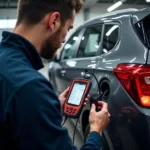Understanding the health of your car goes beyond checking the oil and tire pressure. A full diagnostic test on car systems dives deep, revealing potential issues before they escalate into expensive repairs. Whether you’re experiencing performance hiccups or simply prioritize preventative maintenance, a full diagnostic test offers invaluable insights.
What Does a Full Diagnostic Test on Car Systems Entail?
A full diagnostic test on car utilizes advanced scanners to communicate with your vehicle’s onboard computer, the Engine Control Unit (ECU). This process extracts crucial data about various systems, including:
- Engine: Analyzing performance metrics like RPM, fuel injection, air intake, and emissions to pinpoint issues affecting power, fuel efficiency, or overall engine health.
- Transmission: Scrutinizing shift patterns, clutch operation, and fluid pressure to identify potential problems before they impact drivability.
- Brakes: Evaluating Anti-lock Braking System (ABS) functionality, brake fluid levels, and sensor data to ensure optimal stopping power and safety.
- Airbags: Verifying the integrity of airbag sensors, deployment modules, and wiring to ensure proper function in the event of an accident.
- Emissions System: Monitoring catalytic converter efficiency, oxygen sensor readings, and exhaust gas levels to identify issues that could impact emissions standards.
 Car Diagnostic Scan
Car Diagnostic Scan
Why Opt for a Full Diagnostic Test?
Think of a full diagnostic test as a comprehensive checkup for your car. Here’s why it’s essential:
- Early Detection: Uncover hidden problems before they escalate into major repairs, saving you time and money in the long run.
- Accurate Diagnosis: Pinpoint the root cause of issues, eliminating guesswork and unnecessary part replacements.
- Improved Performance: Identify and address issues affecting fuel efficiency, engine performance, and overall drivability.
- Increased Safety: Ensure critical safety systems like brakes, airbags, and stability control are functioning optimally.
- Higher Resale Value: A clean bill of health from a diagnostic test can boost your car’s value when it’s time to sell.
When Should You Consider a Full Diagnostic Test?
While regular maintenance is crucial, certain situations warrant a full diagnostic test:
- Warning Lights: Illuminated dashboard lights, such as the “Check Engine” or “ABS” light, signal potential issues requiring immediate attention.
- Performance Problems: Experiencing rough idling, reduced fuel efficiency, strange noises, or difficulty starting your car? A diagnostic test can pinpoint the source.
- Used Car Purchase: Before buying a used car, a full diagnostic test provides transparency about its mechanical condition and can reveal potential hidden problems.
- Post-Accident: Even minor accidents can impact a vehicle’s electronic systems. A diagnostic test after an accident ensures everything is in working order.
What Impacts the Cost of a Full Diagnostic Test?
Several factors influence the cost:
- Location: Labor rates vary depending on your geographic location and the type of repair shop you choose.
- Vehicle Make and Model: Some cars have more complex systems, potentially requiring specialized equipment or software for diagnosis.
- Extent of Testing: A basic scan might be sufficient for simple issues, while a comprehensive test involves more in-depth analysis.
Conclusion
A full diagnostic test on car systems is an essential aspect of responsible car ownership. By investing in this proactive approach, you gain peace of mind, avoid costly surprises, and ensure optimal performance and safety for miles to come.

